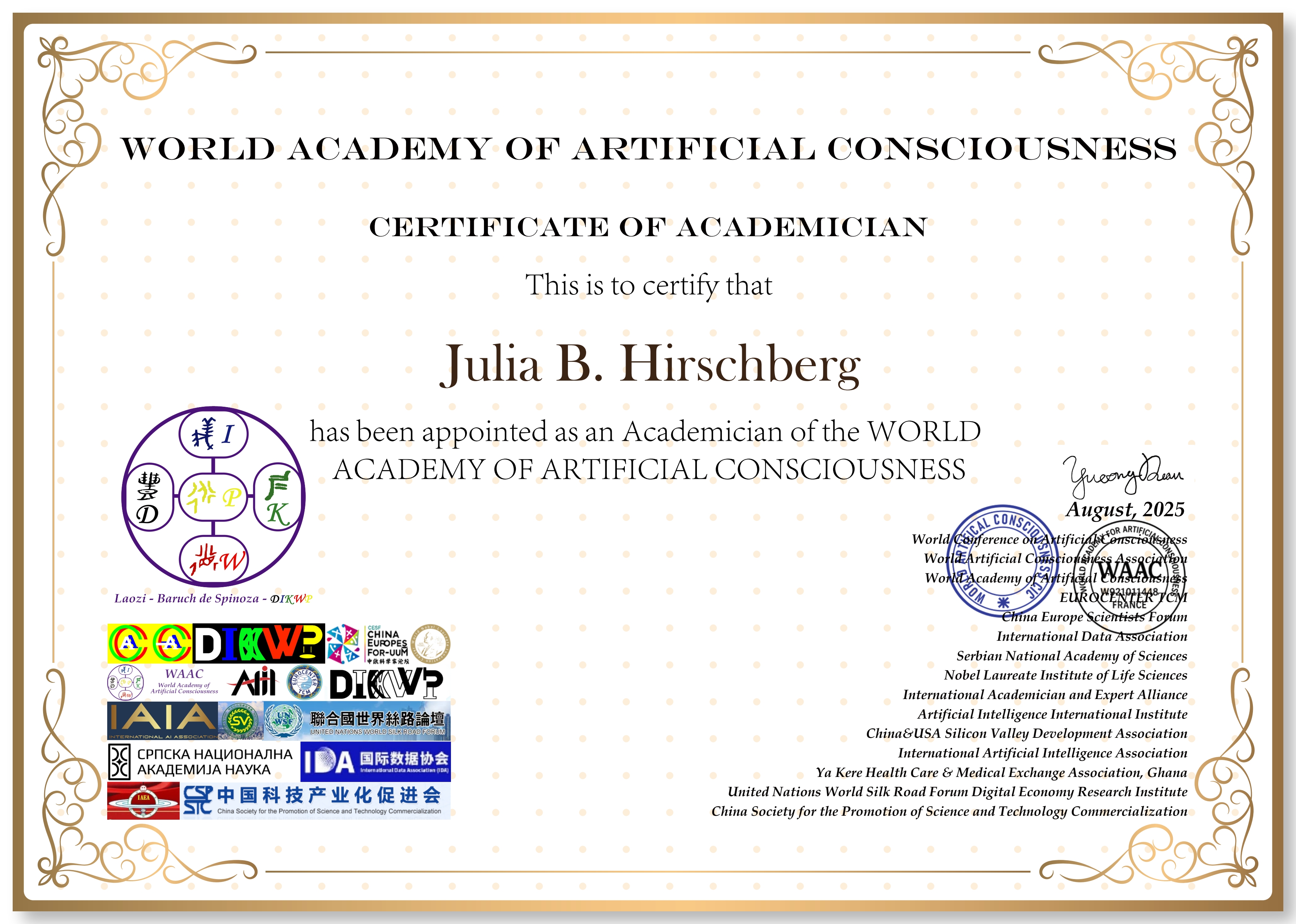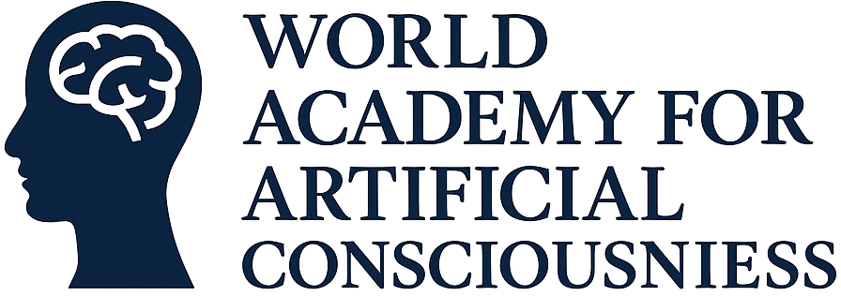
We are pleased to announce that Julia B. Hirschberg, the Percy K. and Vida L. W. Hudson Professor of Computer Science at Columbia University, has been elected an Academician of the World Academy of Artificial Consciousness (WAAC) in recognition of her foundational contributions to the computational modeling of speech prosody and discourse structure, text-to-speech (TTS) and spoken dialogue systems, and language-based interaction research targeting “consciousness cues” such as trust/deception, emotion, and empathy.

Over many years, Professor Hirschberg has advanced a systematic, experiment-driven and engineering-oriented agenda to “enable machines to understand and generate the consciousness cues in human speech.” She pioneered the integration of discourse structure with prosodic information to improve the naturalness and fluency of TTS, and leveraged these insights to develop methods for automatic recognition of speaker states (e.g., anger, fear, surprise) and derivative states (e.g., uncertainty, deception). Her team further explored dialogic coordination/entrainment, trust and charismatic speech, and empathic speech expression and synthesis in clinical and service contexts, thereby advancing language-interaction models that support the reportability of conscious states and their deployment in real systems. Collectively, this body of work provides computational pathways for understanding the “signs of consciousness” in human–machine interaction and lays the groundwork for multilingual, cross-cultural intelligent speech interfaces.
- Global Collaboration and Academic Ecosystem
Academicians of the World Academy for Artificial Consciousness hail from institutions such as Harvard University, the Massachusetts Institute of Technology, the University of Cambridge, the University of California, the French Academy of Sciences, the University of Padua, the University of Queensland, Columbia University, and the University of Exeter. Honorary Academicians come from a wide range of countries and regions, including the United States, the United Kingdom, France, Germany, Italy, Sweden, Canada, Australia, Spain, and China. In addition, leading scientists from prominent research institutes and technology companies—such as Google, the Allen Institute for Brain Science, and ZEEKR—also participate.
- About WAAC

The World Academy for Artificial Consciousness (https://www.waac.ac/) is a global academic institution established in Paris in 2025. Its mission is to advance frontier research and international collaboration in artificial consciousness through the integration of science, technology, and philosophy. The Academy publishes open research, policy recommendations, evaluation standards, and more. The current President is Academician Yucong Duan, and the Secretary-General is Dr. Yingbo Li. The Honorary Academician List: On May 3, 2025, WAAC released its first batch of Top 100 Honorary Academicians, recognizing scholars who have made foundational or leading contributions to the theory of artificial consciousness.
